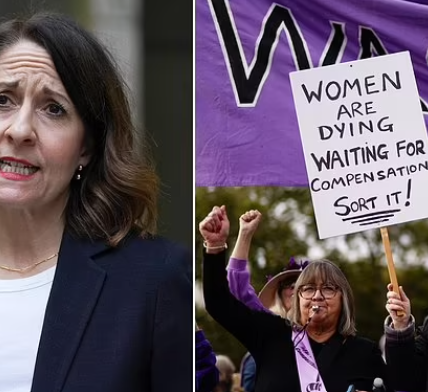British taxpayers foot £825,000 bill for study on the monarchy’s future in the Caribbean as activists ‘agitate’ for its abolition
British taxpayers have footed a £825,000 bill for a study on the monarchy’s future in the Caribbean as anti-royal activists continue to ‘agitate’ for its abolition.
The UK’s Arts and Humanities Research Council (AHRC) gave £825,417 to Visible Crown, a project seeking to explore the ‘political and cultural significance of Elizabeth II in the Caribbean, from 1952 to the present day’.
The project, which organisers say is of ‘immense value’, comes amid increasing pressure on the royal family as it grapples with the UK’s troubled colonial legacy in Commonwealth countries and beyond.
At home, a series of high-profile recent events including the coronation of King Charles III last May, have seen a heavy anti-monarchy presence by protesters and activists.
Against this troubled backdrop, the study will ‘seek to better explain the durability of monarchy in the Caribbean since the end of empire’.

British taxpayers have footed a £825,000 bill for a study on the monarchy’s future in the Caribbean (Pictured: Queen Elizabeth II visits Antigua and Barbuda, 24th October 1985)

Charles and Camilla visit Saint Kitts and Nevis in 2019 and pose with local dancers
It follows several high profile trips by members of the royal family to countries including Jamaica which have seen local protesters demand reparations for the slave trade and brand the royals ‘genocidal’.
One of the study’s researchers, Professor Anna Whitlock, is a historian of the monarchy and media commentator.
She previously wrote that unless the monarchy modernises, it will not survive until the end of the 21st century – and has argued it owes much of its wealth and power to ‘colonial violence’, which she said sustains ‘white inherited privilege’, the Telegraph reports.
And shortly before the late Queen Elizabeth II died, she told the Express the monarchy is ‘ageing’, and that ‘adjustments must be made’.
Among the institutions listed as partners to the project are the Foreign and Commonwealth Office and Historic Royal Palaces UK.
The researchers say it will address all eight Caribbean ‘realms’: Antigua and Barbuda, the Bahamas, Belize, Grenada, Jamaica, St Kitts and Nevis, St Lucia, St Vincent and the Grenadines – as well as ex-Commonwealth nations which are now republics: Dominica, Guyana, and Trinidad and Tobago and, most recently, Barbados.
Research is expected to focus on the Queen’s role in the Caribbean and her legacy, as well as the accession of King Charles III.
One of those listed as ‘advisors’ to the researches is Major J.W David Clarke, Extra Equerry to the Royal Household.

Protesters in Jamaica during the Prince and Princess of Wales’ tour of the Caribbean nation in 2022

Local school children wave to Queen Elizabeth II as she embarked on an eight-country tour of the Caribbean in 1994

The late Queen visited the Caribbean numerous times during her reign, including with her husband (centre) in 1983

The Conservatives’ shadow science secretary Andrew Griffith told the Telegraph the AHRC has a history of splashing out on projects that are ‘at odds with British values’
But the project’s social media page on X has just 127 followers and has not posted anything since retweeting an article by one of its team, Dr Grace Carrington, in November last year.
The AHRC, which is bankrolling the research, is one of multiple councils funded by the UK Research and Innovation (UKRI), which has been handed a budget of £207 million of taxpayer cash for 2022 to 2025. The UKRI also sponsors vital scientific research.
The Conservatives’ shadow science secretary Andrew Griffith told the Telegraph the AHRC has a history of splashing out on projects that are ‘at odds with British values’.
A spokesman for UKRI told the paper: ‘UKRI invests in a diverse research and innovation portfolio.
‘Decisions to fund the research projects we support are made via a rigorous peer review process by relevant independent experts from across academia and business.’
The AHRC has been contacted for comment.




